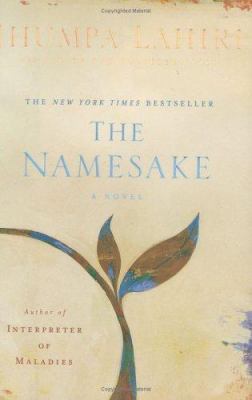
Jhumpa Lahiri’s novel The Namesake tells the story of the Ganguli family and their experience as Indian immigrants in America. As The Namesake takes place over multiple generations, many changes occur throughout the course of the novel including marriage, divorce, immigration, and even death. The novel focuses on the family’s first son, Gogol Ganguli, and the conflicts he faces as he matures, such as feeling trapped between Bengali and American cultures. Gogol responds to his confusion by pushing away his Indian culture and fully immersing himself in an American lifestyle. His negative feelings towards his given name Gogol mirror his view of his Indian culture. Lahiri also describes the experiences of Ashima and Ashoke, Gogol’s parents. Ashima, unable to view “home” as anywhere but India, struggles to accept and assimilate to life in America. Ashoke, on the other hand, flourishes in the new country.
This book contains so many things to analyze, but I am going to focus on the tension that develops between Gogol and Ashoke because of cultural differences in their upbringings and Gogol’s refusal to accept his culture. When Gogol and Ashoke eat dinner, Gogol is too full to finish. Ashoke’s “plate is polished clean… Ashoke shakes his head at Gogol, disapproving, unyielding. Each day Ashoke is pained by the half-eaten sandwiches people toss into garbage cans on campus, apples abandoned after one or two bites ‘Finish it, Gogol. At your age I ate tin’” (Lahiri 55). Ashoke grows up with barely enough food, causing him to savour every bite and not waste anything. On the other hand, Gogol matures in a place with an abundance of food and sees nothing wrong with not finishing his dinner. This difference in Ashoke’s and Gogol’s upbringings develops tension at the dinner table, demonstrated by Ashoke shaking his head and ordering Gogol to finish. When Ashoke and Ashima find out about Gogol’s girlfriend Ruth, they reprimand him, saying, “‘You’re too young to get involved this way,’... At times [Gogol] hangs up on them. He pities his parents when they speak to him this way, for having no experience of being young and in love” (117). Ashoke and Ashima have an arranged marriage, meaning that they only meet a couple times before their wedding. They never have the freedom to go on dates and choose who they want to be with. Gogol, on the other hand, has this freedom, and feels frustrated by his parents admonishment. The tension that develops because of cultural differences about relationships causes Gogol to pity his parents and hang up on them, shutting away his family.
Every once in a while I read a book that completely changes my perspective in life. The Namesake is one of those books, and without hesitation I can call it my favorite novel. Coming from an immigrant family, I relate to the book in many ways. Lahiri does a phenomenal job of portraying the immigrant experience in America by detailing each character’s journey. Ashima struggles to assimilate, Ashoke enjoys life in the U.S., and Gogol feels trapped between the cultures of America and of India. Furthermore, Lahiri writes beautifully. Her words flow together like honey, completely captivating the reader and evoking every sense. She describes each character in depth, and weaves in impeccable metaphors throughout the story. Lahiri is truly
a master at bringing her characters and the story to life.
Check out The Namesake at the Newport Beach Public Library.